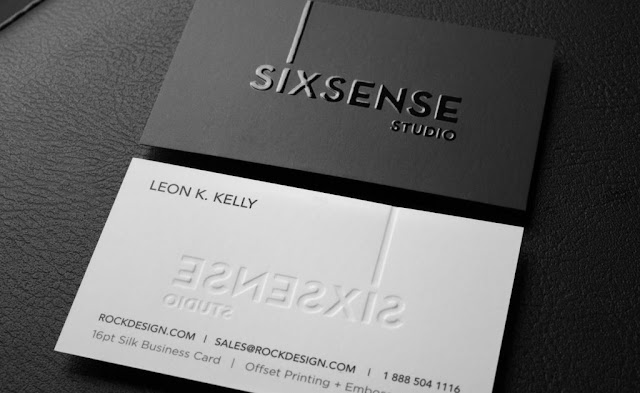Embossing vs. Debossing
Embossing and debossing are effective techniques to use when seeking to elevate the printed promotional materials. Both have advantages, but selecting the best option for your project can be challenging. We'll go through the edges of each and help you decide which is best for you.
Which one do you go for your project? It all relates to
not only personal preference but also packaging standards and requirements.
Let's take a closer look at the embossing and debossing processes.
Embossing Vs Debossing
1.
Embossing is
the act of physically increasing individual areas of your packaging design's
surface. A die, a personalized metal plate, is made and then pressed into the
design's material. This die may be single-level or multi-level, resulting in a
single standardized distance across the field. Multi-level dies provide an
elevated surface with a variety of heights.
Embossing is used for a variety of purposes, including
brochures, postcards, and business cards, as well as letterheads, stamps,
folders, and badges.
Types
of Embossing
o
Embossing can use a variety of die types to
create extraordinary results.
o
For example, round dies to produce images
with rounded corners, while flat dies to create pictures with straight edges and
challenging shapes.
o
Slightly curved dies are often used to
produce tapering/sloping sides for a deep emboss effect. This will provide a
multi-layer impact that is more or less three-dimensional.
2.
Debossing is
the inverse of embossing. It produces an imprint that reduces areas of the
surface of the box, resulting in depression. Each of these processes transforms
a flat surface into a three-dimensional field. They are both distinct ways to
enhance the packaging and highlight specific areas, most notably where your
logo gets printed.
BENEFITS
OF THESE PROCESSES
Embossing
and debossing give the packaging a luxurious, intricate look and feel. It
denotes the extra effort and attention that have been put into your packaging,
enhancing the desirability of your goods and the interest a consumer has in
you. If you want to make eco-friendly packaging, these processes use no
additional materials, making it a green design choice.
Elegant Appearance
When a logo is embossed or debossed, it
stands out. This helps it to stand out on the packaging and appear distinct as
opposed to competitors' packaging. A memorable logo is one that sticks out and
contributes to the development of the brand name.
1. Highlight
Important Information
The three-dimensional space on the
surfaces of the packages easily attracts the customer. Some essential
information such as product descriptions or the contact information is
displayed for this purpose.
2. Easier
to Apply Ink
The application of Tin to debossed
designs is simpler as there is no risk that it will pass over any other section.
3. Easily
customized
With the various finishing choices, you
can personalize the look even further to further emphasize and enhance your
style.
For e.g., die can be modified to make a
different look for the emboss or deboss, so they look deep in multiple layers
instead of just one up or down layer. That will make the concept look more like
the kit is 'sculpted.'
Why
is Embossing More Expensive than Debossing?
You might be wonder why embossing and debossing are more
costly since all metal plates are used to stamp the pattern into the material.
(Printing industry). In fact, this is necessary to force
the die into the material. The use of the counter raises the setup expense,
meaning even if you need a small piece of printed products, you cannot financially
pay the upfront cost for your printing project.
You can also check out further coating services. Feel free to contact us today to learn more about your choices and let's collaborate to bring your packaging vision to life in a way that inspires your ideal customer while still increasing brand recognition and loyalty.


Comments
Post a Comment